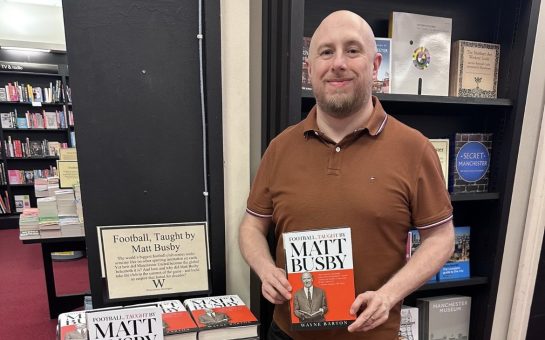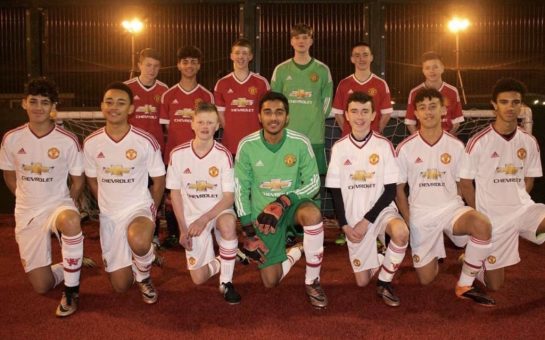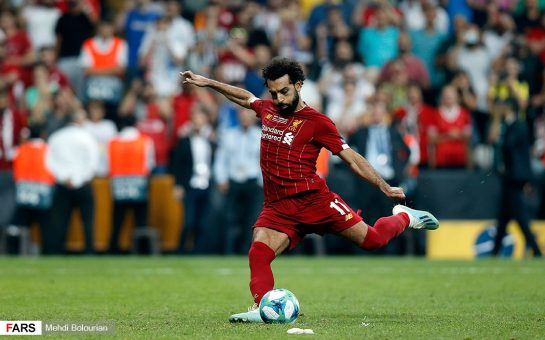The 2019 Football Writing Festival continued at the National Football Museum in Manchester on Monday night with ‘Opta Live’.
Host Daniel Storey (Football365, i) was joined by The Athletic’s Michael Cox and Duncan Alexander (Opta Joe) for a discussion on the past decade of European football.
Starting with José Mourinho’s 2010 treble-winning Inter Milan side and ending with predictions for the future, the evening provided a forward-thinking examination of the modern game, focusing on the era’s prevalent managers and tactics.
Refreshingly free of nostalgia, the discussions were rooted in statistics rather than sentiment, as the panel disputed rose-tinted appreciation for teams of the past.
Once Mourinho’s rise and fall was closely examined, the widely-lauded style of Vicente del Bosque’s Spain team was branded conservative and dour – Storey described their approach as “death by football”.
Alexander reiterated this by pointing out that Spain won all of their knockout games 1-0 at the 2010 World Cup, stating that they were underwhelming and their success resulted in the fetishisation of possession football.
This led to a fascinating discussion of the changing nature of tactics over the decade. Pep Guardiola was presented as a constant and as the ‘manager to beat’ throughout the decade. His style was credited with inspiring the Spain side, but their inability to recreate its spark was lamented.
Regardless, Storey declared that Guardiola’s success and his impact on European football has been so extraordinary that it has somehow been normalised and the speed with which he improves his sides was underappreciated.
Germany’s 2014 world champions were presented as the decade’s next major development in tactics. The panel suggested that their dynamic and exciting football was a natural response to the attritional approach of Spain.
The dichotomy between Spain and Germany’s tactics was a constant theme throughout the evening, with Guardiola and Jürgen Klopp’s current rivalry in the Premier League seen to represent the latest battle between these two styles.
As the night developed and other iconic teams were re-evaluated, I began to wonder whether I’d ever watched football closely enough. Cox and Alexander stated that Arsenal’s invincibles were not as attacking or free-flowing as we wish to remember.
The same was claimed about the 2008 Manchester United side, before Cox added that none of this decade’s World Cup winners should be considered a great side. It was clear that standards were very high.
Always providing evidence for their claims, the panel took no prisoners in their analysis of the past decade.
Success was appreciated, but the focus on football’s development was not marred by sentimentality. A lack of veneration for bygone eras felt progressive and presented the sport as constantly changing for the better.
As the event’s name would suggest, the significance of analytics and the rise of data-gathering companies such as Opta were also discussed in detail. The panel credited data and its use by younger managers and analysts as driving forces behind the modernisation of the English game.
Aston Villa’s Dean Smith, Brighton’s Graham Potter and Chelsea’s Frank Lampard were heralded as a new and improved generation of English tacticians, who represented a clear break from the era of Alan Pardew, Sam Allardyce and Neil Warnock.
Cox applauded Smith and others for representing a thoughtfulness and data-driven approach to management that wasn’t necessarily present in English football before.
Alexander added to this by claiming the accessibility of data had led to a tactical revolution in this country, which has become evident beyond the elite level. Opta now cover the entire Football League to the same detail as the Premier League, which Alexander claimed had improved the tactics and quality of lower league games significantly.
The theme of modernisation developed in a Q&A when the panel were asked about the role of social media and its effect on the game. Somewhat surprisingly, Twitter was praised for bringing fans closer to football.
Cox and Alexander made the point that Twitter provided fans with a stronger voice and, most interestingly, created a forum to hold pundits to account for a lack of knowledge. Both agreed that standards of television punditry had improved as a result and Alexander added that broadcasters could not get away with taking pride in being tactically uniformed any more.
Storey brought a fascinating and enlightening evening to an end in an optimistic manner, telling the audience to trust the direction in which English football was heading and to resist the urge for instant gratification.
You were inclined to believe them – the panel were well-informed, engaging and provided an intelligent approach to football analysis. I left wanting to study the game in minute detail and wondering whether I had ever seen a truly great football team.
Opta Live
I could only make it to one @mcrfwf event this year, but I’m glad it was this one. In the league of most knowledgable minds in football media, @oilysailor, @danielstorey85 and @Zonal_Marking are all challenging for the Champions League places. #MCRFWF pic.twitter.com/Ui8NXCxAtr
— Mitch Mansfield (@Mitch_Mansfield) September 9, 2019



